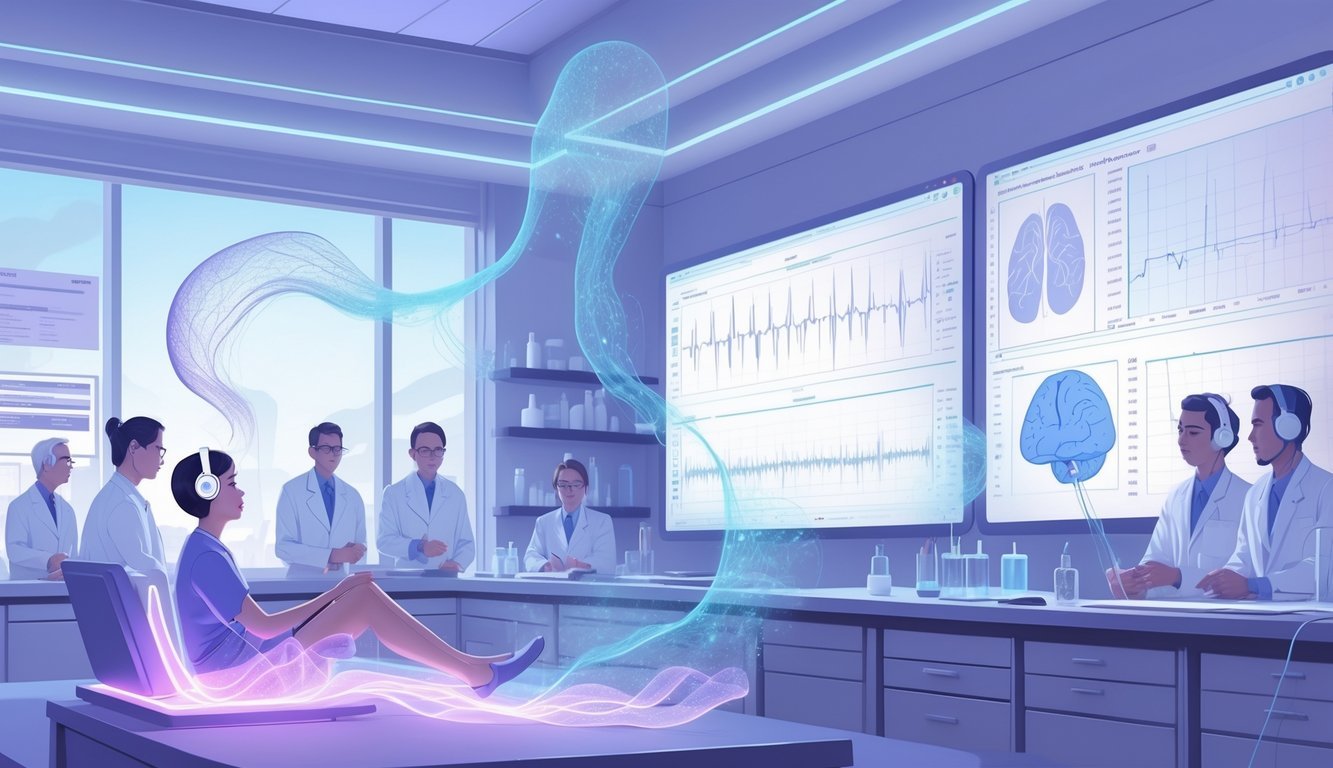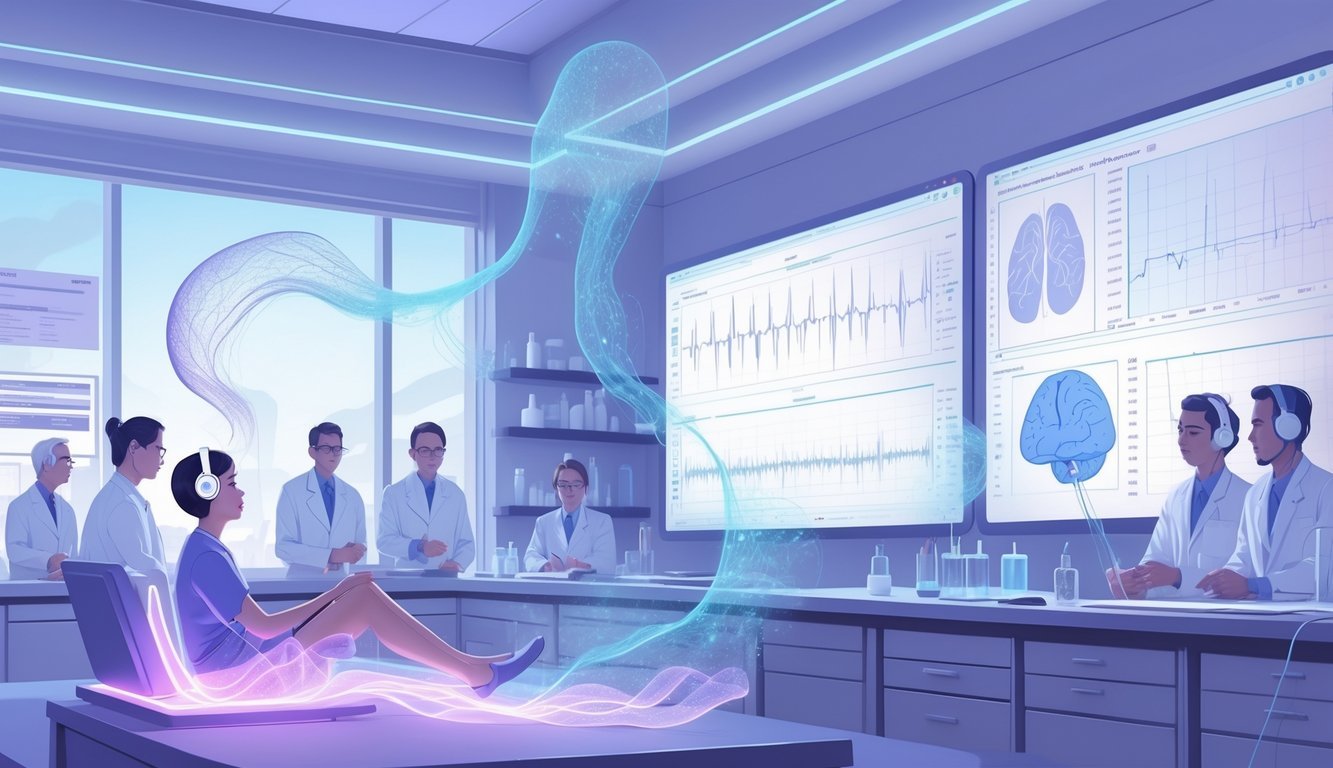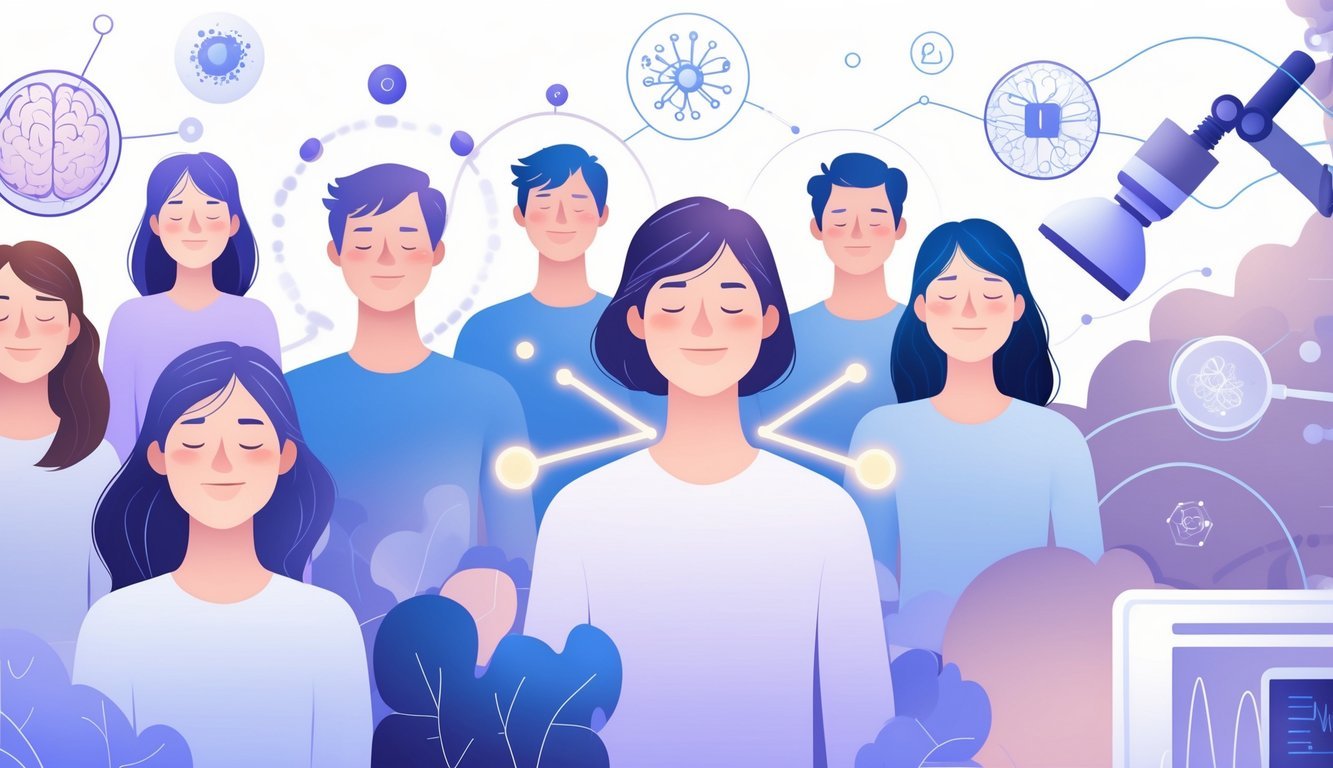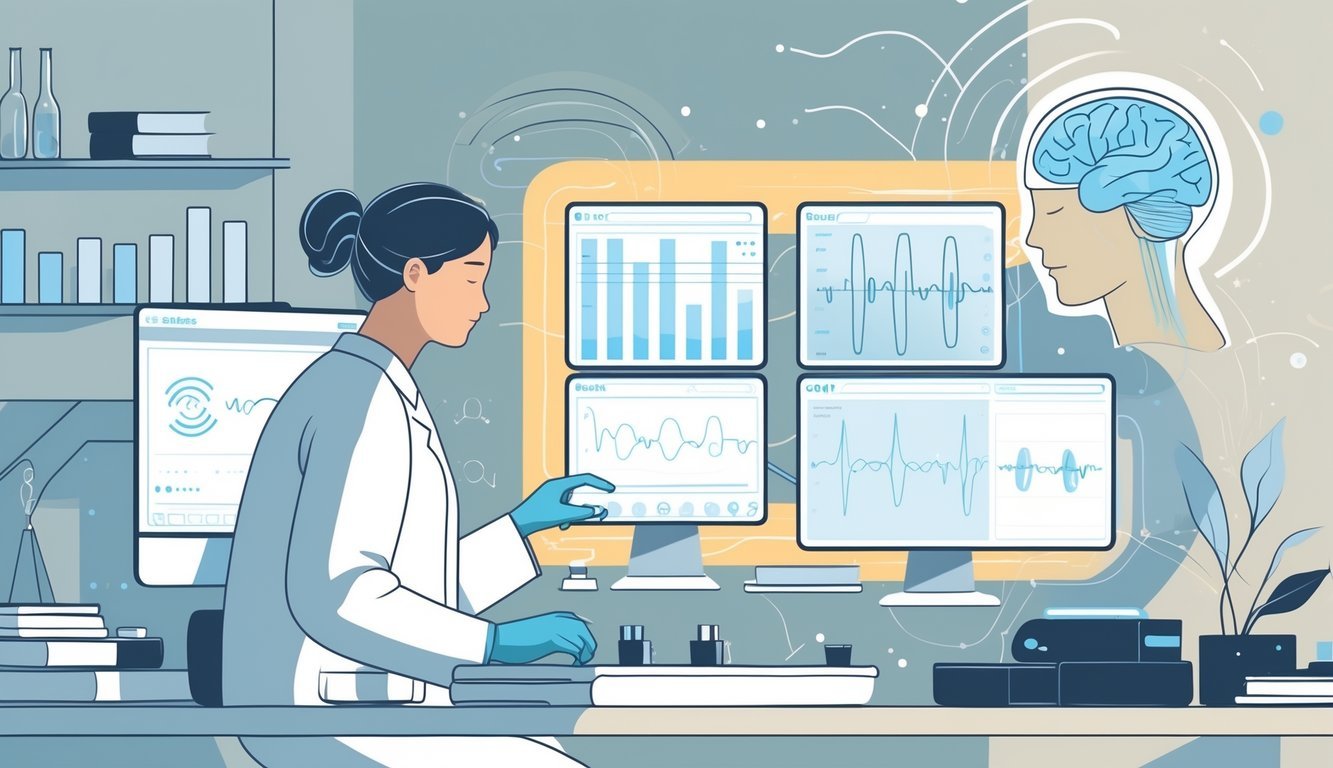PsychNewsDaily Publishers
100 Summit Drive
Burlington, MA, 01803
Telephone: (320) 349-2484
PsychNewsDaily Publishers
100 Summit Drive
Burlington, MA, 01803
Telephone: (320) 349-2484
Autonomous Sensory Meridian Response triggers calming sensations, often through soft sounds and visuals, promoting relaxation, reducing stress, and improving sleep quality for many individuals.

A lot of people get this odd but pleasant tingling feeling called ASMR—Autonomous Sensory Meridian Response. ASMR usually brings on a gentle, warm sensation that starts at the head or spine, washing over your mind with calm and relaxation. It’s a unique sensation, and honestly, it’s become a bit of a craze thanks to videos and sounds specifically designed to trigger it.

When you feel ASMR tingles, your brain lights up in areas linked to emotions and empathy. That might explain why ASMR makes you feel peaceful and cared for.
Not everyone gets ASMR, but plenty of people use it to cut down on stress and boost their mood.
If you’re curious about why ASMR causes these sensations or how it might affect your mental health, you’re in good company. Scientists keep poking at this mysterious feeling, trying to figure out what it really means for your brain and body.

ASMR brings on a tingling feeling, often around your head and spine. Triggers like soft sounds and certain visuals set it off.
People usually feel calm, relaxed, and sometimes even euphoric after these experiences.
ASMR stands for Autonomous Sensory Meridian Response. When you get it, you might feel tingles that start at your scalp and travel down your spine.
Scientists haven’t cracked exactly how it works, but brain scans show unique patterns when people experience ASMR.
Watching or listening to ASMR videos, your brain reacts differently than it does to regular sounds or sights. This reaction mixes touch, sound, and visuals into a pretty complex sensory event.
Not everyone feels these tingles, and the intensity can really differ from person to person.
Some triggers work better than others. Whispering, crisp tapping or scratching sounds, hair brushing, and the noise of simple tasks like page turning seem to be favorites.
Watching someone give personal attention or move their hands slowly can also set off the tingles. Gentle voices and soothing sounds create a chill vibe that makes everything feel more relaxing.
Usually, these triggers combine to create a stronger ASMR effect.
ASMR links directly to feelings of calm and relaxation. When the tingles hit, your body tends to let go of stress.
Many people say ASMR leaves them feeling euphoric and helps with anxiety or sleep.
There’s even an afterglow. Brain studies show your mood can stay lifted for a bit after an ASMR session. That makes it a handy tool for stress relief and everyday mental well-being.

You might notice ASMR helps lower stress and boost your mood. It can even help with sleep problems, and it seems to connect to certain personality quirks.
These effects really highlight ASMR’s potential to support your mental well-being.
When you watch ASMR videos, your heart rate can slow down and you might feel much calmer. This effect connects to more alpha brain waves, kind of like what happens during meditation.
These shifts can help ease anxiety and depression by encouraging relaxation.
A lot of people use ASMR to lift their mood after a tough day. The soft sounds and slow movements help you feel cozy and safe.
Over time, you might find it easier to manage stress and tough emotions.
People struggling with insomnia often turn to ASMR. The relaxing tingles and calm voices help your body wind down for sleep.
Some folks find ASMR works better than other relaxation techniques.
If your mind races at night, ASMR might help you focus away from worries. Using it before bed can improve sleep and cut down on waking up during the night.
How you experience ASMR might depend on your personality and sensory sensitivity. People who are open to new experiences or high in empathy often feel ASMR more deeply.
Traits like neuroticism can shape how often or how strongly you respond.
Some people with synaesthesia or misophonia have stronger or just different reactions to ASMR. ASMR shares similarities with music therapy and chills from music, tapping into brain areas for emotional bonding and sensory processing.

You might have questions about how ASMR works, whether it’s safe, or how it helps with sleep and relaxation. People also wonder why some triggers work better, and what’s behind the recent popularity.
The tingles usually start in your head and neck. Certain sounds or visuals kick off brain activity linked to calm and pleasure.
Researchers think it’s tied to how your nervous system reacts to gentle stimuli.
Most people don’t run into problems with ASMR. If you ever feel uncomfortable or anxious from a trigger, it’s best to stop. ASMR is generally safe, but it’s not for everyone.
Some therapists use ASMR to help clients relax or manage stress and sleep problems. The calming sensations can support other treatments, especially for anxiety and insomnia.
Still, ASMR isn’t a substitute for professional medical care.
Research shows ASMR can lower heart rates and boost calmness. Many people say it helps them relax before bed and sleep better.
These benefits seem to come from the soothing sounds and gentle stimulation.
Whispering, tapping, or slow hand movements seem to work best for most people. These triggers activate sensory nerves in a particular way.
The repetitive, soft nature of these cues helps your brain chill out and focus.
ASMR has really taken off lately, mostly thanks to how easy it is to find videos online. People love sharing their favorite triggers, and you see them pop up everywhere.
A lot of folks turn to ASMR for stress relief. It just feels calming, which honestly makes a lot of sense with how hectic life can get these days.